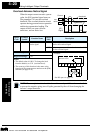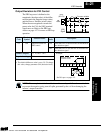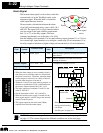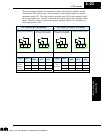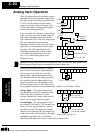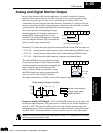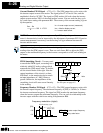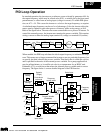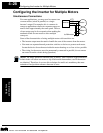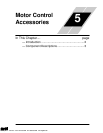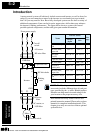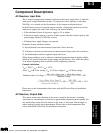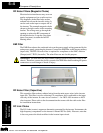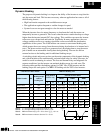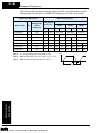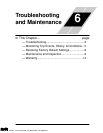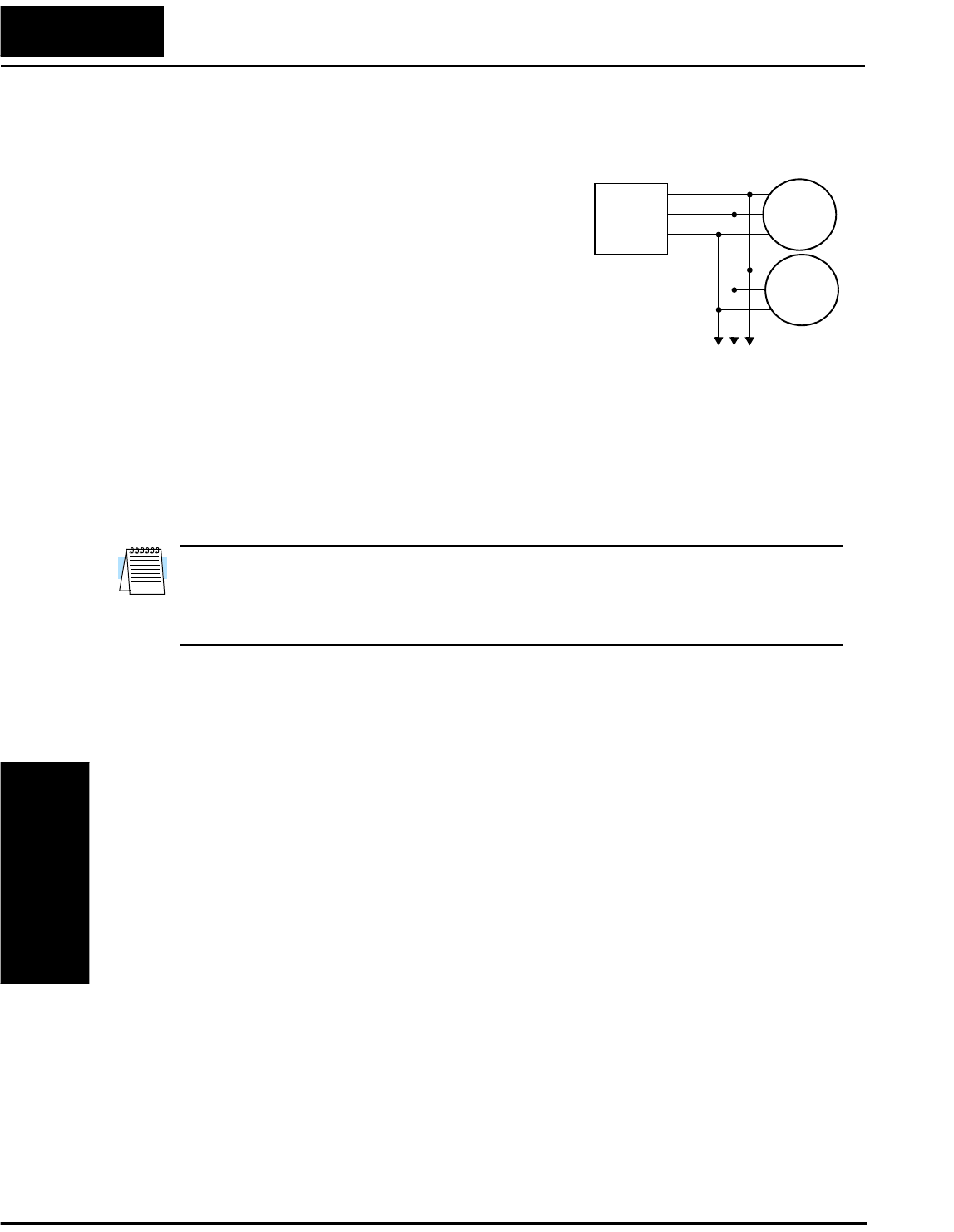
Configuring the Inverter for Multiple Motors
Operations
and Monitoring
4–28
Configuring the Inverter for Multiple Motors
Simultaneous Connections
For some applications, you may need to connect two
or more motors (wired in parallel) to a single
inverter’s output. For example, this is common in
conveyor applications where two separate conveyors
need to have approximately the same speed. The use
of two motors may be less expensive than making the
mechanical link for one motor to drive multiple
conveyors.
Some of the characteristics of using multiple motors with one drive are:
• The inverter output must be rated to handle the sum of the currents from the motors.
• You must use separate thermal protection switches or devices to protect each motor.
Locate the device for each motor inside the motor housing or as close to it as possible.
• The wiring for the motors must be permanently connected in parallel (do not remove
one motor from the circuit during operation).
NOTE: The motor speeds are identical only in theory. That is because slight differences
in their loads will cause one motor to slip a little more than another, even if the motors
are identical. Therefore, do not use this technique for multi-axis machinery that must
maintain a fixed position reference between its axes.
Motor 1
Inverter
Motor 2
U/T1
V/T2
W/T3
to Nth motor
Technologies Inc.
Toll Free: voice: 1-877-539-2542 fax: 1-800-539-2542 www.mgitech.com



